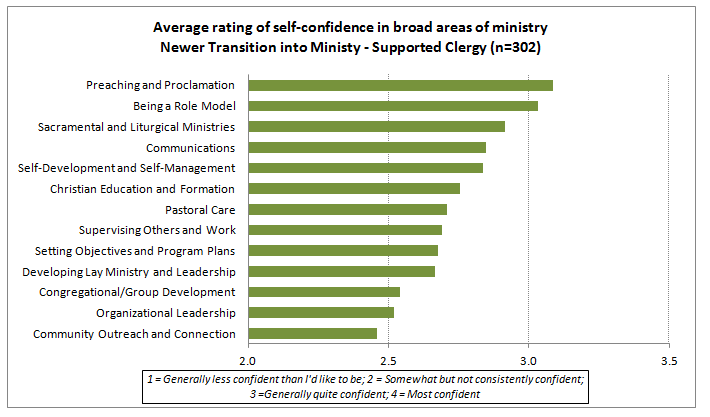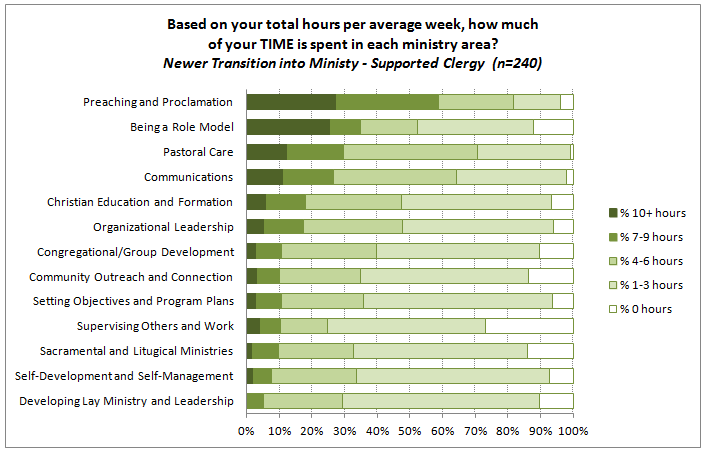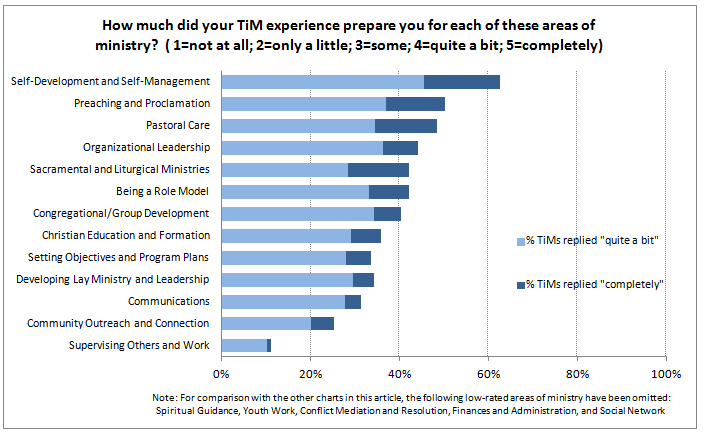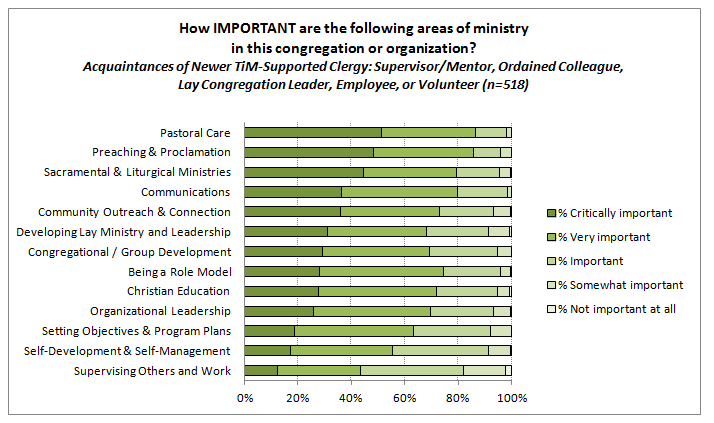When you envision great church leaders, what strengths and skills do you focus on? Do you think of dynamic preachers whose powerful words can galvanize a congregation? Gentle souls whose loving spirits inspire others to change their lives? A fearless crusader working for peace and justice in the world? Or perhaps a compassionate pastor who helped you or your family through a time of crisis?
The Clergy Into Action Study is part of a 15-year effort by Principal Investigator Dr. David Gortner to explore questions about what effective religious leadership looks like. Where is the Christian Church overall in terms of effectiveness in its ministry and leadership? What does the Church lack, and what does it need?
Through research projects funded by the Lilly Endowment, Dr. Gortner has studied noteworthy ordained leaders who have brought significant growth to their congregations and other ministry settings—not merely in numbers, but in emotional life, spiritual vibrancy, and impact in their communities.
This research has yielded some clear markers of ways that effective clergy think about and approach the challenges and opportunities of ministry:
- a deeply positive regard and expectation for the capacities of people and groups in the congregation;
- a moderate degree of assertiveness and decisiveness blended with a high degree of collaborative interest in others;
- a capacity to work with and anticipate conflict;
- a creativity that is vigorous yet well managed and grounded;
- an ability to think theologically about situations in a way that moves toward transformational action;
- a savvy sense of networks of influence in congregations and communities; and
- a clear and consistent process of communicating and gathering feedback.
Unfortunately, these skills are not commonly found in Christian clergy, and that has to do with the established church systems that they inhabit.
In general, mainline protestant denominations still cling to a very traditional model of ordained ministry. The majority of their clergy have basic skills in the core functions of preaching, pastoral care, and sacramental ministry, but they typically have not developed these other, more hidden (but perhaps more central) capacities for effective leadership of congregations, listed above.
One of the goals of the Clergy Into Action Study has been to examine how well (or not well) seminary education and post-seminary training prepare clergy for effective ministry and leadership.
The study results are remarkably consistent. They reflect a pattern of maintenance, not change, in how the Church chooses, educates, and trains its future leaders. The dominant model of pastoral / priestly leadership over-emphasizes the pastoral, homiletic, and sacramental facets of ministry and de-emphasizes (and even seeks to avoid) the facets of ministry having to do with organizational leadership and community-building.
In what areas do more recently ordained clergy report the highest confidence in their work? Preaching, leading worship, and acting as a role model.
On which areas of ministry do they spend the most time? Preaching, acting as a role model, and pastoral care.
What did seminary most effectively prepare them for? Preaching, leading worship, and pastoral care.
What about post-seminary training and transition programs, like the Transition into Ministry (TiM) programs funded by the Lilly Endowment? Respondents said they learned a lot about self-development and self-management, which is encouraging. The second- and third-highest rated categories were preaching and pastoral care.
Meanwhile, appearing at the bottom of these rankings are skills such as objective-setting and program planning, lay leadership development, conflict engagement, organizational leadership, congregational development, and building community connections. New clergy describe themselves as unprepared to provide leadership and ministry in supervision, youth work, finance and administration, and understanding and working with natural social networks.
Preaching, leading worship, and pastoral care are profoundly important capacities for clergy to have: Good preaching helps focus and energize people in their Christian faith. Well-crafted worship can nurture deep devotion, while sloppy or rigid worship frustrates people. Experiences of poor pastoral care drive people away.
But this traditional emphasis supports a model of Christian religion that centers attention on the priest or pastor rather than on the community. In this model, the ordained minister provides the Word and sacraments to an existing congregation that can be expected to adhere to a common faith.
Such a model assumes that interest in church will continue “world without end” in American culture, that people will come because it is their natural inclination to do so—despite evidence over the past 25 years of decreasing interest by the American public in participation in church and organized religion.1
For Your Consideration
- Think of congregations where you have worked or been deeply involved as a member or volunteer. Can you recall skills that the clergy there did not have, but which would have been very helpful?
Continue Reading . . .
- Part 1: Newly ordained clergy rate their self-confidence in various areas of ministry
- Part 2: Which areas of ministry new pastors and priests prioritize in their time use
- Part 3: What topics are covered most completely in seminary and post-seminary training
- Part 4: What abilities supervisors, lay people, and fellow clergy say are most important to their congregations
1 William Couch, Juan Thomassie, and Thad Allender, “Shifting Religious Identities: See How U.S. Religious Landscape Has Changed in Nearly 2 Decades,” USA Today, March 9, 2009, http://usatoday30.usatoday.com/news/religion/2009-03-09-ARIS-faith-survey_N.htm. See also “’Nones’ on the Rise,” Pew Research and Public Life Project, October 9, 2012, http://www.pewforum.org/2012/10/09/nones-on-the-rise/.







